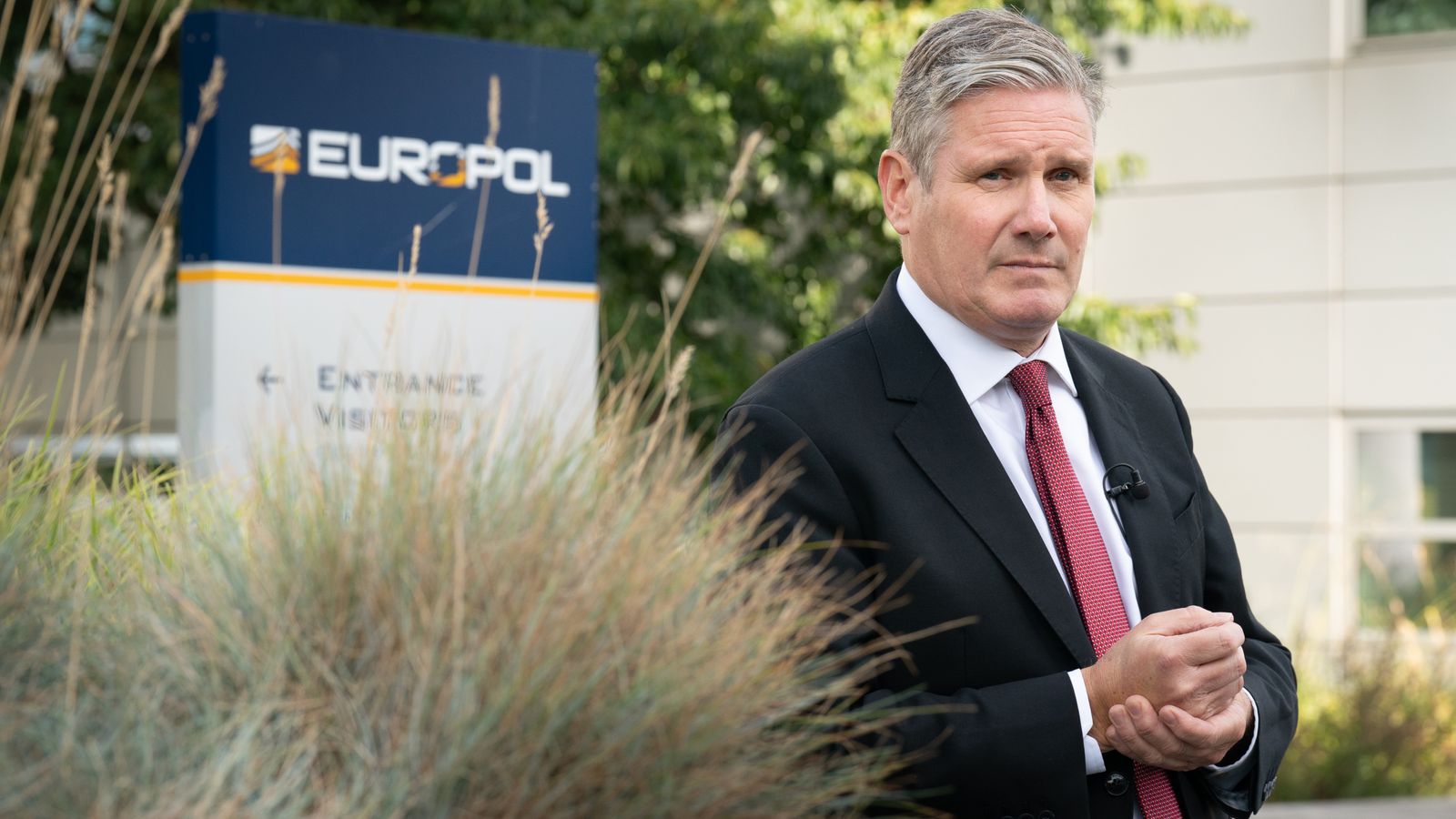Sky News has learned that hundreds of people are coming forward to claim a role in the coronation of King Charles after a Coronation Claims committee, set up by the government, opened applications up to those who believe they have a hereditary or historic right to carry out ceremonial roles during the event in May.
Ahead of the closing date for applications on 3 February, the cabinet office has told Sky News they’ve had a very good response with hundreds filling in forms to perform historic roles.
Based on examples from past coronation claims, that could include the right to give the King a glove or a towel during the service.
It throws into the spotlight the complex and potentially risky balancing act that the King, the palace and the government face when it comes to making this coronation feel reflective of Britain’s history, while still being relatable, inclusive and acceptable to a less deferential audience today.
Read more:
Coronation will ’emphasise cost of living crisis’, royal expert says
Charles’s coronation set to be three-day spectacle of ‘ceremonial, celebratory and community events’
Some, of course, love the ritual and pageantry that will unfold inside Westminster Abbey, as was proven by the audiences for the Queen’s funeral and Platinum Jubilee.
However, Catherine Pepinster, author of Defenders of the Faith: The British Monarchy, Religion and the Next Coronation, believes they’ve already missed a trick when it comes to shaking things up.
Please use Chrome browser for a more accessible video player
“They perhaps could have had a ballot and people could have applied and said ‘I would like to carry the royal standard and hand over the King’s glove for his moment when he wears that for holding the sceptre’. Another way they could have chosen people that have done great things for the country.
“Instead they’re emphasising heredity and obviously the monarchy is about heredity … I can’t see why they didn’t grab the opportunity to use those sorts of small ceremonial moments to be more modern because of the people involved.”
She added: “The thing people have to remember is the coronation is not actually set in stone. There’s lots of traditions surrounding it but there have been changes over the years, different orders of service, different crowns.
“There are things that are musts. It always involves the taking of oaths, the anointing of the monarch and also the crowning but other things can be moved around.”
Documents at the National Archives in Kew, London, give an idea of the challenge organisers face, with the most recent blueprint for a service such as this dating back 70 years, when Queen Elizabeth II was crowned in 1953.
Applications were made to the Court of Claims in 1953 to carry a towel for the Queen, give her a glove and hold her arm.
There was also a request for the right to hold a canopy over King George VI at his coronation in 1937.
Very little detail has been released so far about what elements will be included in the King’s service, except that both the King and Queen Consort will be crowned, with the monarch also anointed, blessed and consecrated by the Archbishop of Canterbury.
The service will also be shorter than the Queen’s coronation, which was about three hours long – her procession through London was also two hours, and it’s unlikely we’ll see that again.
The King has made it clear that while the weekend will be rooted in tradition, he wants it to be reflective of the future and what Britain represents today.
Since becoming King, there has been a clear push to get Charles out meeting as many diverse communities as possible.
In the week after the Queen died, he stressed that he viewed respecting and celebrating diversity as a key part of his role.
Last summer, before he became King, he guest edited The Voice Newspaper – its editor Lester Holloway said the edition received a mixed response from their readers and he expects the coronation will too.
“The Prince Charles that we saw through him guest editing showed that he does care passionately about some issues about climate change, about the environment, I would actually add race equality as part of those”, he said.
Mr Holloway added: “I think there are moves that he can make even before the coronation so, for example, apologising for slavery and colonialism, I think that will be a major step, but more than the ceremony itself it’s really the conversations that are taking place.
“So rather than just having reverence I think that we have got to embrace some hard truths and it’s through that process of dialogue that ultimately the future of the royal family and the monarchy will be decided.”
While the social and political context of this coronation is different, other monarchs have also used their coronations to bring people together.
Katie Fox, a records specialist at the National Archives, said: “There were street parties for the Queen’s coronation and I think you can also see within our collection here at the national archive is that people, going back to the medieval period, did celebrate coronations just albeit in a different way.
“For the Queen’s coronation, 27 million people watched at home which was not possible before that point.”
The family soap opera around Prince Harry and Prince Andrew provide added distractions this time around, along with questions about the amount of money needed to stage the event during the cost of living crisis.
This time, it’s social media that the palace is particularly mindful of.
This will be the first digital coronation the United Kingdom has ever experienced – in the days after the Queen died, the social media channels of the royal family received 1.5 billion engagements.
It means an ever greater worldwide audience, far larger than the Queen’s coronation, raising the stakes even higher for getting the right tone for what will be a global showcase for Britain and a modern monarchy.








